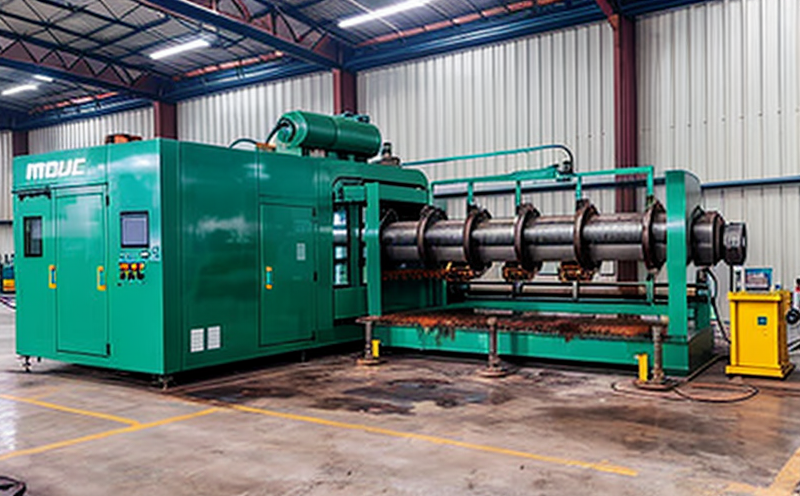Impact of corrosion resistance testing on machine design
The Power of Corrosion Resistance Testing Revolutionizing Machine Design with Eurolab
In todays fast-paced industrial landscape, machine design has become an increasingly complex and critical aspect of business operations. With the rapid advancement of technology and innovative manufacturing techniques, machines are being designed to perform more efficiently, effectively, and safely. However, one crucial factor that often gets overlooked in this process is corrosion resistance testing. This laboratory service, provided by Eurolab, plays a vital role in ensuring that machines withstand the harsh conditions of their operating environment, thereby extending their lifespan and reducing maintenance costs.
What is Corrosion Resistance Testing?
Corrosion resistance testing is a scientific analysis used to evaluate the susceptibility of materials to corrosion under specific environmental conditions. This process involves subjecting samples to various corrosive agents, such as acids, bases, salts, or water, to assess their ability to withstand degradation. The results of this testing provide valuable insights into the materials performance and durability, enabling engineers and manufacturers to make informed decisions about material selection and machine design.
Why is Corrosion Resistance Testing Essential for Businesses?
Incorporating corrosion resistance testing into your machine design process can have a significant impact on business operations. Here are just a few compelling reasons why
Reduced Maintenance Costs Corrosion is one of the leading causes of equipment failure, resulting in costly repairs and downtime. By identifying potential corrosion issues early on, businesses can take proactive measures to prevent damage and minimize maintenance costs.
Extended Equipment Lifespan Corrosion resistance testing helps manufacturers select materials that can withstand harsh environments, ensuring their machines operate efficiently for longer periods.
Improved Safety Corroded equipment can pose serious safety risks, including the potential for catastrophic failures. By prioritizing corrosion resistance, businesses can create a safer working environment for employees and reduce liability.
Compliance with Industry Regulations Many industries have strict regulations regarding equipment maintenance and inspection. By incorporating corrosion resistance testing into your machine design process, you can ensure compliance with these regulations and avoid costly fines.
Increased Efficiency Corrosion-resistant materials can improve the overall performance of machines by reducing downtime and increasing operational capacity.
Key Benefits of Corrosion Resistance Testing
Here are some key benefits of using corrosion resistance testing in machine design
Material Selection Optimization Corrosion resistance testing enables manufacturers to select materials that best meet their specific needs, ensuring optimal performance and durability.
Design Improvements The insights gained from corrosion resistance testing can inform design modifications, reducing the risk of equipment failure and improving overall efficiency.
Cost Savings By identifying potential corrosion issues early on, businesses can avoid costly repairs and reduce maintenance expenses.
Improved Product Reliability Corrosion-resistant materials can enhance product reliability, reducing the likelihood of equipment failure and improving customer satisfaction.
Competitive Advantage Businesses that prioritize corrosion resistance testing can differentiate themselves from competitors by offering high-quality products that withstand harsh environments.
A Comprehensive Guide to Corrosion Resistance Testing
Eurolabs corrosion resistance testing services are designed to provide accurate and reliable results, enabling businesses to make informed decisions about material selection and machine design. Our expert technicians employ a range of testing methods, including
Immersion Testing Samples are submerged in corrosive agents for extended periods, simulating real-world conditions.
Salt Spray Testing A controlled environment is created to replicate the effects of saltwater or other corrosive substances on materials.
Acidic and Alkaline Testing Samples are exposed to acidic or alkaline solutions to assess their resistance to corrosion.
Frequently Asked Questions (FAQs)
Q What types of equipment can benefit from corrosion resistance testing?
A Any machine or component that operates in a corrosive environment, including those used in chemical processing, marine applications, or industrial settings.
Q How do I select the right materials for my machine design?
A Corrosion resistance testing can help you identify suitable materials based on their performance under specific environmental conditions.
Q Can corrosion resistance testing be performed in-house?
A While some basic corrosion tests can be conducted in-house, more comprehensive testing typically requires specialized equipment and expertise. Eurolabs experienced technicians are equipped to handle even the most complex testing requirements.
Q How long does corrosion resistance testing take?
A The duration of testing depends on the specific method used and the desired level of detail. Typical testing times range from a few hours to several weeks or months.
Conclusion
Incorporating corrosion resistance testing into your machine design process can have a transformative impact on business operations, from reducing maintenance costs and extending equipment lifespan to improving safety and compliance with industry regulations. Eurolabs comprehensive laboratory services provide the expertise and resources needed to ensure that machines are designed to withstand even the most challenging environments. By partnering with us, youll be able to make informed decisions about material selection, design modifications, and product development ultimately driving business growth and success.
Dont wait until corrosion has taken its toll on your equipment. Contact Eurolab today to learn more about our corrosion resistance testing services and take the first step towards creating safer, more efficient machines that meet the demands of your industry.




